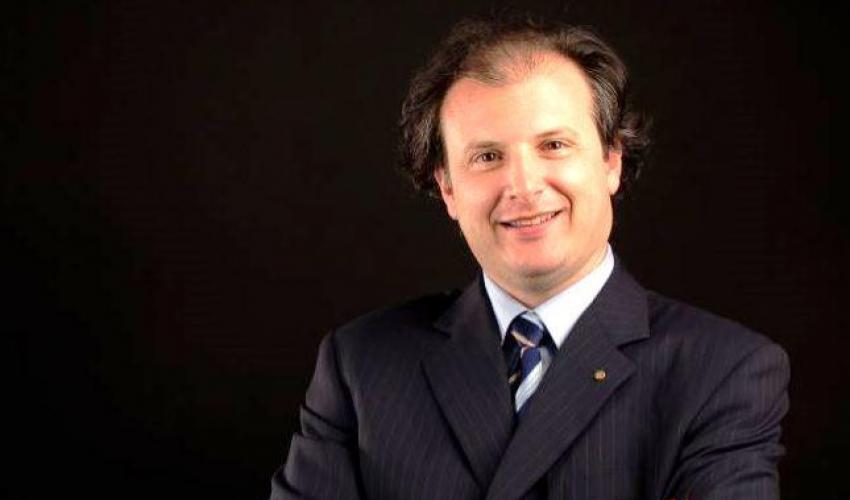
Grab Hold of the Data Driven Economy: It Cannot Be Stopped
WE CANNOT AVOID THE DISRUPTION OF BIG DATA: WE HAVE TO LEARN HOW TO READ BIG DATA AND USE IT TO IMPROVE EVERYDAY LIFE. MANAGERS, SCIENTISTS AND LEGAL THEORISTS ARE PREPARING FOR THE CHALLENGEby Emanuele Borgonovo, Dept.of Decision Sciences, Bocconi
Translated by Alex Foti
2015 was the year in which the number of cell phones in use surpassed the number of inhabitants on the planet. Also in 2015, humankind uploaded more gigabytes of information onto the Net than had previously been generated in history. We have entered the age of the data-driven economy. The globalization and digitalization of human activities has put a hitherto unimaginable bounty of data in the hands of citizens, firms and researchers.
The possibilities opened by the big data revolution are manifold and unpredictable: we are just at the start of the process. The Internet of Things is changing the way manufacturing evolves. Sensors placed on appliances connected to the web are able to relay data which can then be used for pre-emptive maintenance or real-time management of the logistics chain. We can now start speculating about the future of the data-driven economy, and also, by playing the devil’s advocate, about those who will fear it.
Let’s start from managers. Back in 1970, a very interesting article by J.C. Little (now Emeritus at MIT) described the relationship between management and data. To most managers, the advantages of big data are self-evident, but crunching the numbers needs to be made more effective. Using figures, data and models is not simple, even today. We can thus expect a slightly altered prolongation of the fraught relationship between managers and data (big or not). With big data, numbers play an ever more important role. But, by themselves, figures do not tell us anything. A manager must take a critical approach in reading numbers and have an understanding of the algorithms that generate the answers to his/her questions. As Tim Cook, Apple CEO, said in his inaugural address opening Bocconi’s academic year, a manager must keep his or her intuition alive and critically put it next to numbers. There is thus a growing need for new professional roles that can function as liaisons between decision-makers and data. An example in this respect is the appointment of D.J. Patil as the first Chief Data Officer of the White House in February 2015.
For firms, big data can become a key input, like oil. Many recent articles underscore the business potential of big data and how big data can help increase process efficiency, enlarge customer base, and better serve existing consumers. If companies move toward a real-time use of big data, they also need to be ready and proactive on the IT front. Development in the industry occurs at breakneck speed, with a myriad of new software packages and apps for mobile devices which are revolutionizing the way we visualize and interact with data. There is reason to fear a surfeit of data, though, and skilled professionals are needed to avoid the oversupply of information.
Big data is an enormous source of innovation for scientists which, however, requires new processes, algorithms, and ways of looking at phenomena. For universities and educators in general, already today big data have created the need for the training of young professional manager-researchers capable of dealing with the data driven economy, in order to give them the opportunity to lead the future and stay ahead of the labor demand curve. We need higher education programs which combine economic and managerial competencies (which remain central) with skilled knowledge of statistical methods and computer science. T
As citizens, we can refer to another passage in the speech by Tim Cook at Bocconi, when he says that one Apple’s biggest ethical worries is that of protecting privacy. Let’s consider, for example, Apple’s Health app. From an individual point of view, the app can be beneficial in helping us adopt a healthier lifestyle. If health data are collectively merged, they can serve as a universal lab, enabling correlations between the health parameters of millions of people, which could well bring about a revolution in health and medicine. There is danger of friendly fire, though, in the risk of being monitored, profiled and possibly required to pay steeper insurance premiums, maybe because the app has recorded an insufficient amount of time devoted to physical activities. These observations bring us to the legal issues involved, with experts coming to terms with the ethical challenges and dilemmas raised by the digitalization of society.
Summing up, big data is like any other disruptive technology. Big data is to be feared by those organizations which, by not adapting to its use, run the chance of missing major opportunities. Other companies may use data without developing the right set of skills, and fail to exploit its potential to the full, or even extract counterproductive information.
